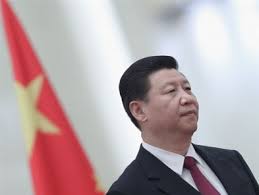The communiqué which followed the Third Plenum meeting of the Chinese Communist Party’s Central Committee may have been “gnomic,” but The Economist reports that two institutional changes indicate that president Xi Jinping may be moving to further consolidate power:
The first of these is the setting up of a “state-security committee”. Details of this have not been revealed. It may be Mr Xi’s attempt to rein in a security apparatus that had become too powerful in recent years. Some of its functions are expected to mirror those of America’s National Security Council, which advises the president on foreign policy and tries to ensure that all government agencies are well co-ordinated. China’s new body is thought likely to include representatives from the army and police as well as ministries responsible for foreign and economic affairs. It would be a sign of Mr Xi’s growing power if he has at last persuaded the security forces to act more in concert with the rest of the bureaucracy.
The other notable change is the establishment of a “leading small group” to supervise reforms. Such groups count. They report to the Politburo and help to form and implement policy decisions. Again, no details have been given of the new body, but it could help to overcome bureaucratic rivalries that often stymie reforms. It may even be chaired by Mr Xi. The communiqué calls for “decisive results” by 2020 in unspecified “important areas” of reform. [Source]
Pundits, including Cheng Li at the Brookings Institution, hailed the document as a turning point. In a commentary in the Jakarta Globe, Vikram Nehru wrote that “it constitutes a serious, if cautiously crafted, agenda for the future.”
Still, according to Katie Holliday at CNBC, the lengthy statement “left many analysts feeling flat.” Despite the importance of the document to the Chinese people, David Wertime wrote in Foreign Policy ‘s Passport blog that many were left to wonder what it really meant:
If they’re failing, it’s not for lack of trying: On Sina Weibo, China’s Twitter, a search for “third plenum” yielded over 2.7 million recent mentions, and among those comments, over 154,000 used the word jiedu, which roughly means “to decode.” Frustration is palpable online. One Weibo user complained, “I glanced at the Third Plenum communiqué; it surpasses my ability to understand it.” Another wrote, “I made myself dizzy reading it three times.” And another: “It’s a pile of words on top of words, without saying anything.” And this: “I can’t understand why after a meeting lasting three days, the only thing they can produce is … a document that has to be decoded. It’s like a high school exam.” [Source]
Jamil Anderlini at the Financial Times added Wednesday that the communiqué’s language was largely met with cynicism:
“These reforms are just like small repairs on an old road,” says Zhang Ming, a professor of politics at Renmin University in Beijing. “In essence, they are about making small adjustments at the administrative level, but these are pretty meaningless and hard to sustain.” [Source]
China history blogger Jeremiah Jenne understands why some are frustrated, but writes that outside observers have had heightened expectations of reform for new Chinese leaders for centuries:
While the frustration is normal, everybody needs to take ten deep knee bends. Xi has been in power for about a year (less if you include the formal state titles) and he’s basically Tommy Boy.** He’s inherited a standing committee loyal to the other guys and there’s only so much he can do. Fortunately, five of the seven guys are due to retire in 2017. If in 2017, he still insists on naming paleo-Party types to the standing committee then let the hand wringing truly begin. Until then, he may just be biding his time. I’m not saying that Xi is (or isn’t) a reformer, but as Zhou would say: It’s too soon to tell. [Source]
See also selected weibo comments on the Third Plenum, translated by CDT.








